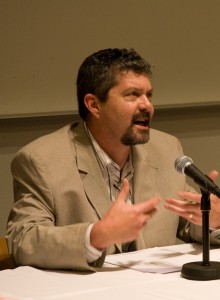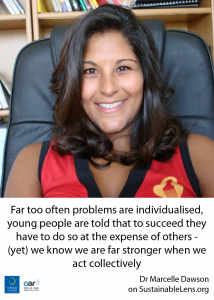
The key challenge we are trying to address is how to provide spaces for the additional one hundred million students – that’s the equivalent of building four sizeable universities with roughly 30,000 students each, every week for the next 15 years.
Dr Wayne Mackintosh imagines a world where anyone in the world has access to a world-class education online for free, and getting credentials for it.   But he is not just imagining it, he is doing it.  Wayne holds the UNESCO-COL Chair in OER at Otago Polytechnic. He is the founding Director of the OER Foundation and the International Centre for Open Education based at Otago Polytechnic, New Zealand.  He talks about the launch of Open Educational Resources University (OERu) – a significant milestone in higher education globally, and marking a transition from an international collaboration prototype to a sustainable, scalable program of accessible OERu study.
We are shifting the question from how do you achieve sustainable OER projects at your institution to, how will your institution remain sustainable without OER? We are the competition on the doorsteps of tertiary education institutions around the world
The conventional model of delivery is not going to be able to respond to the challenge of the growing need internationally.
I’m a teacher by choice, and it’s been the most rewarding decision I have taken in my career
Smart thinking, use technology to reach the unreachable
Absolutely I’m an activist, an open source, open education activist.
it’s (open education) mission critical for a more sustainable planet. We need to be using scarce resources more effectively, and respect the fundamental freedom of expression – freedom of speech- that we espouse to in modern democracies
Shane’s number of the week: 4,500,000. That is there are 4.5 million people in the UK who are members or supporters of environment and conservation groups.
Sam’s joined-up-thinking: Sam talked us through the increasingly important role of social enterprise in computing.


